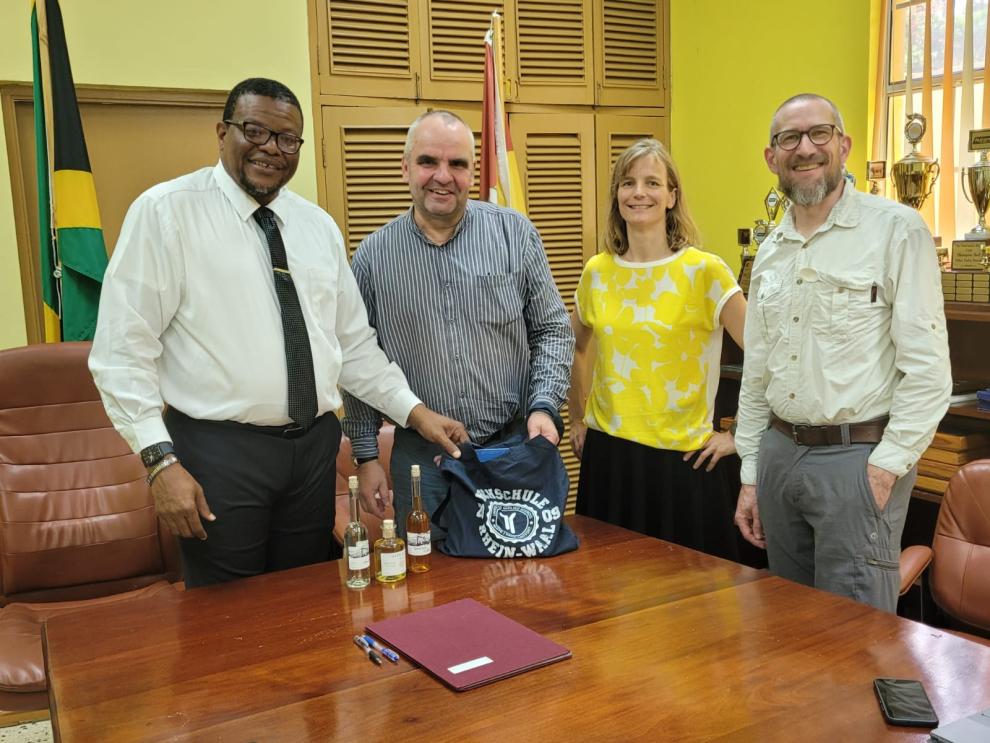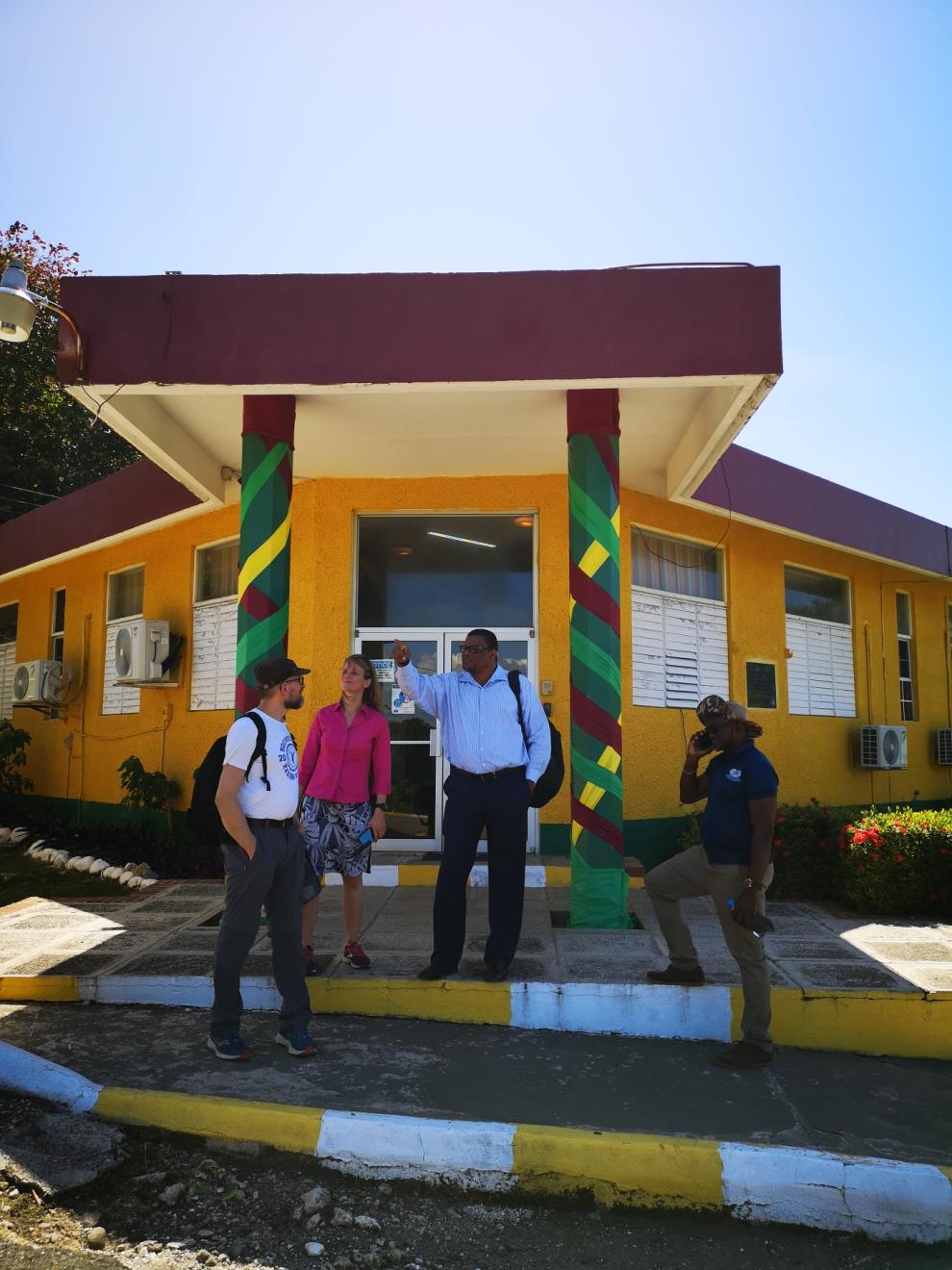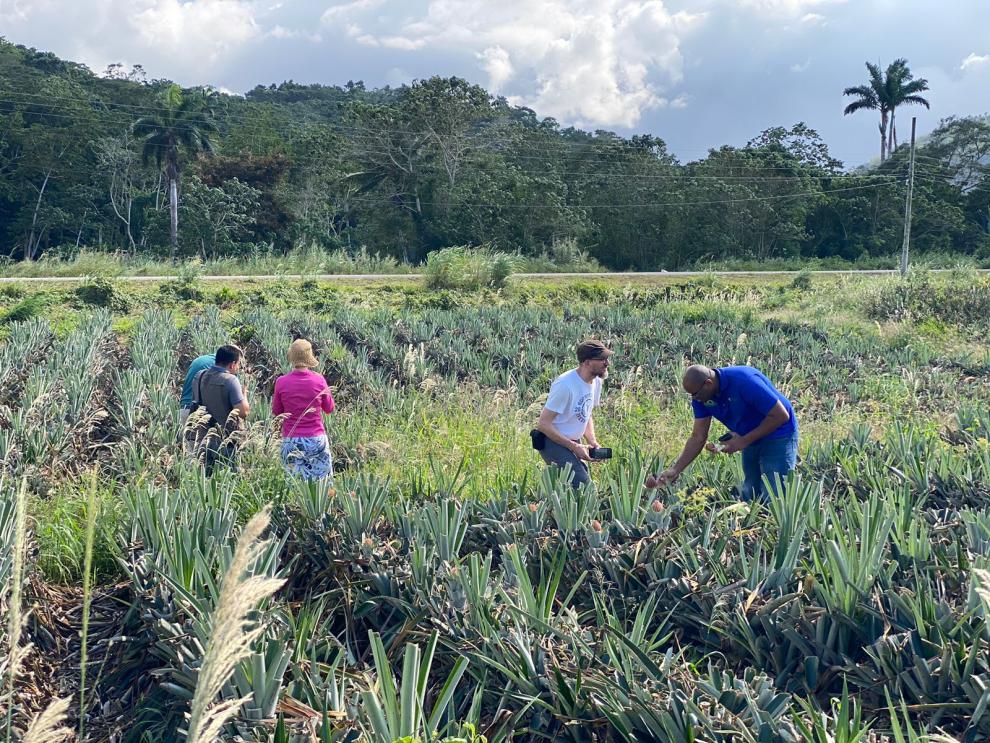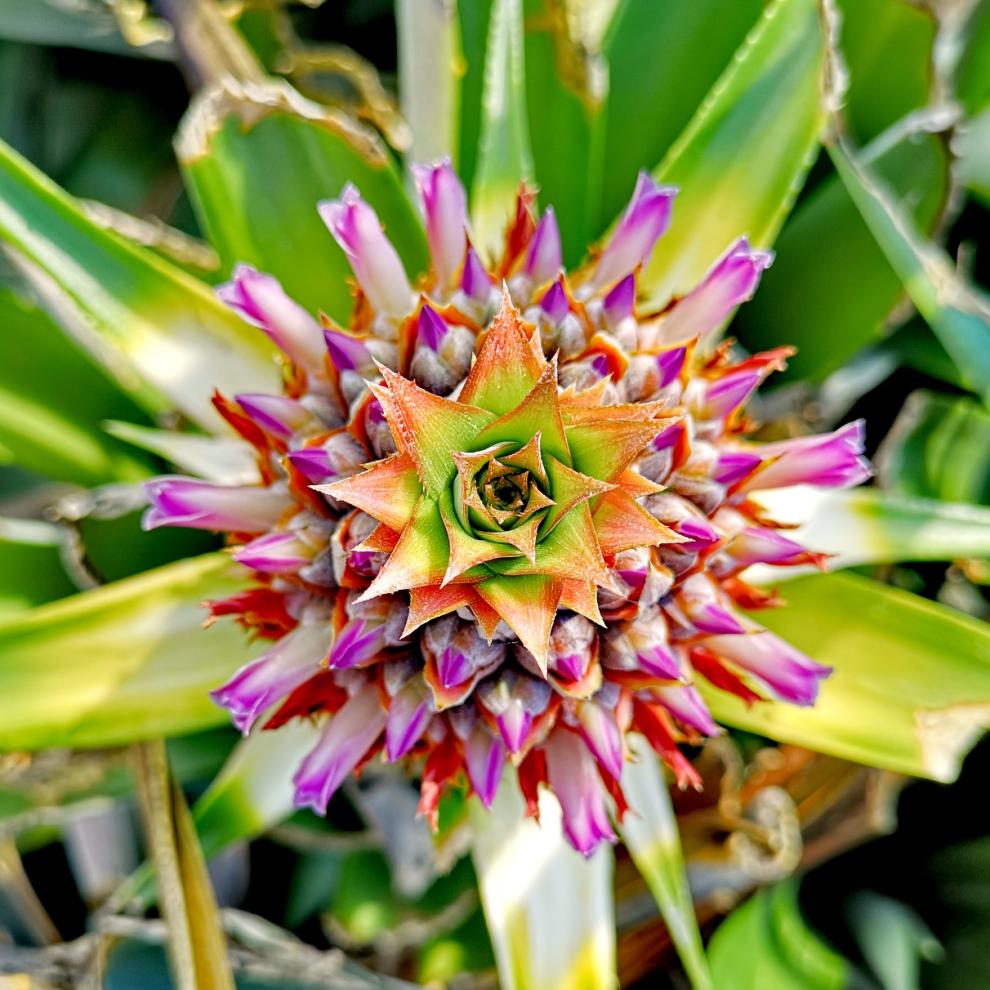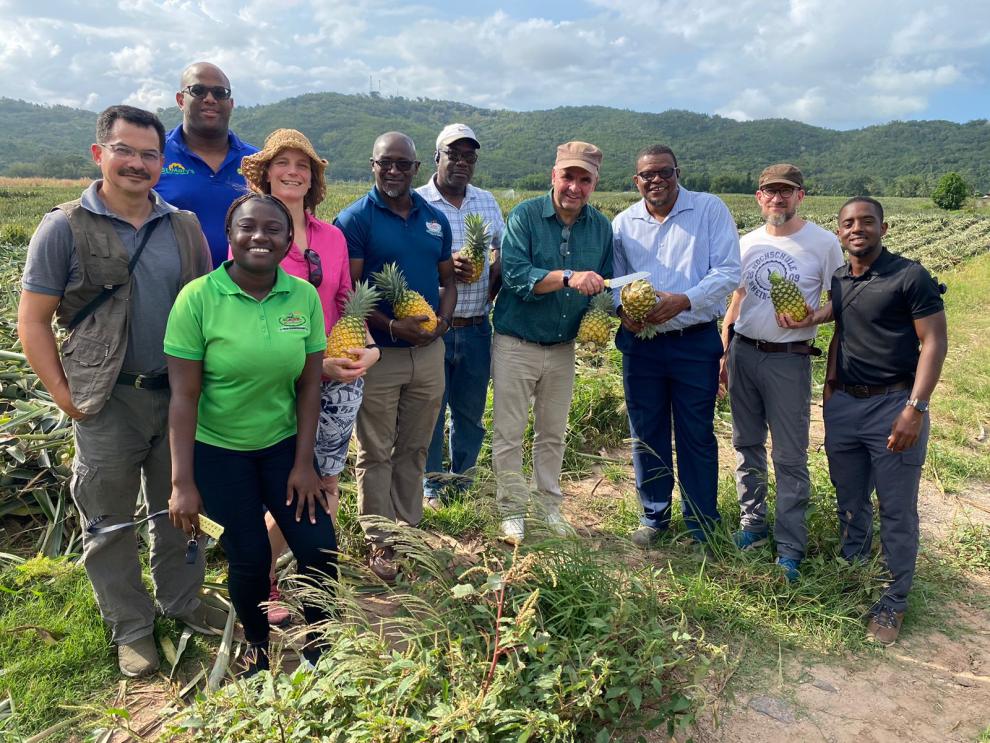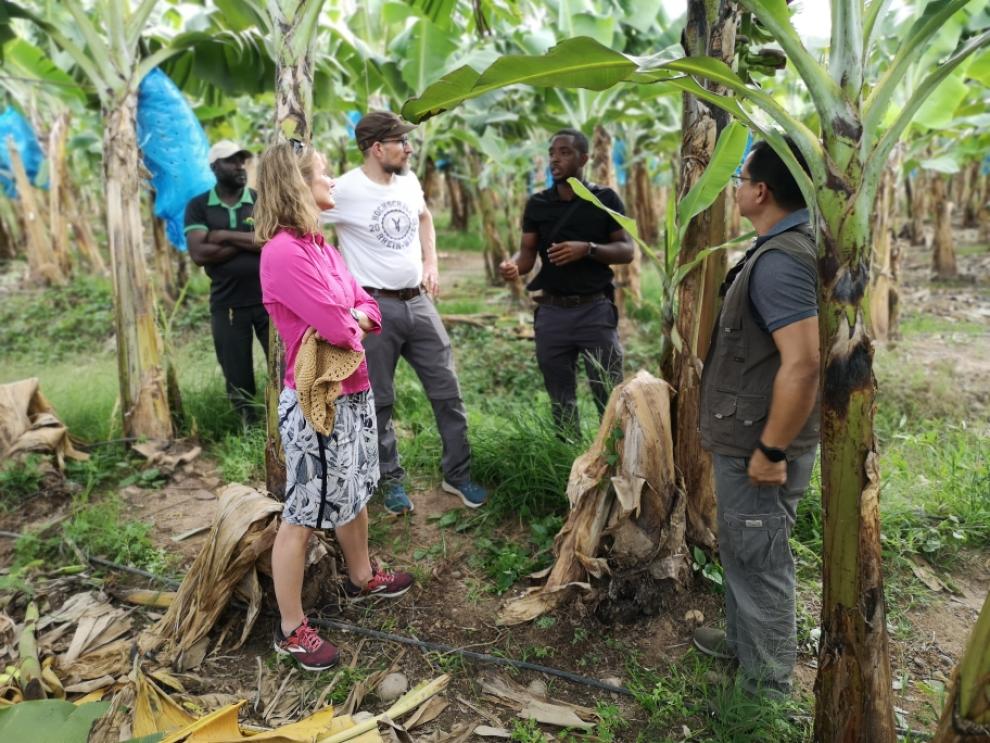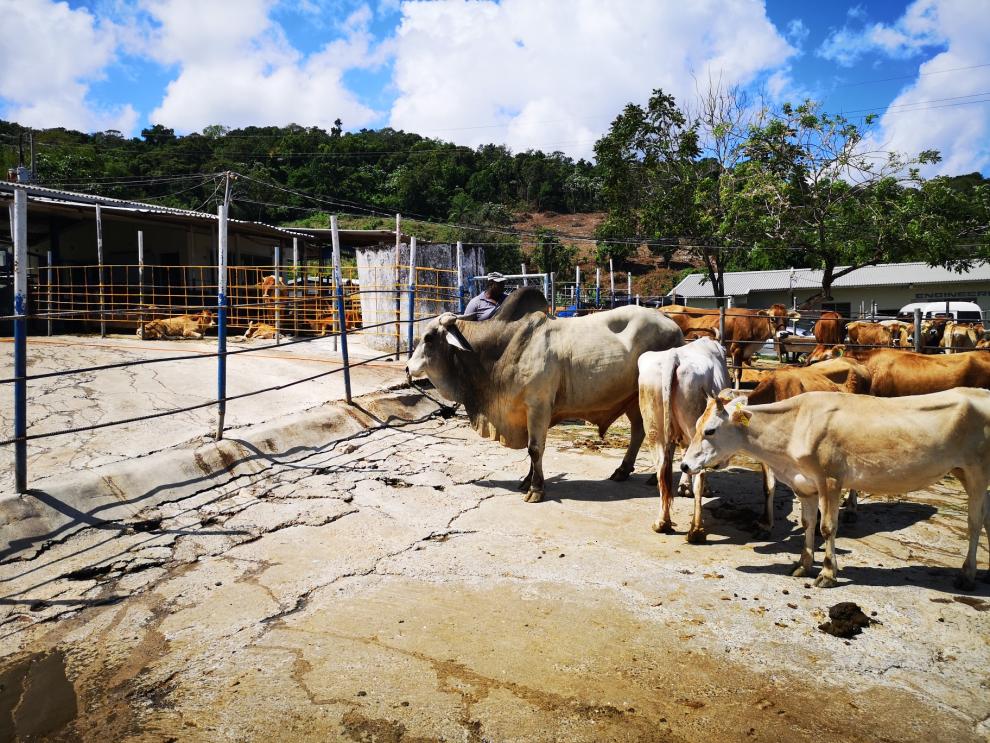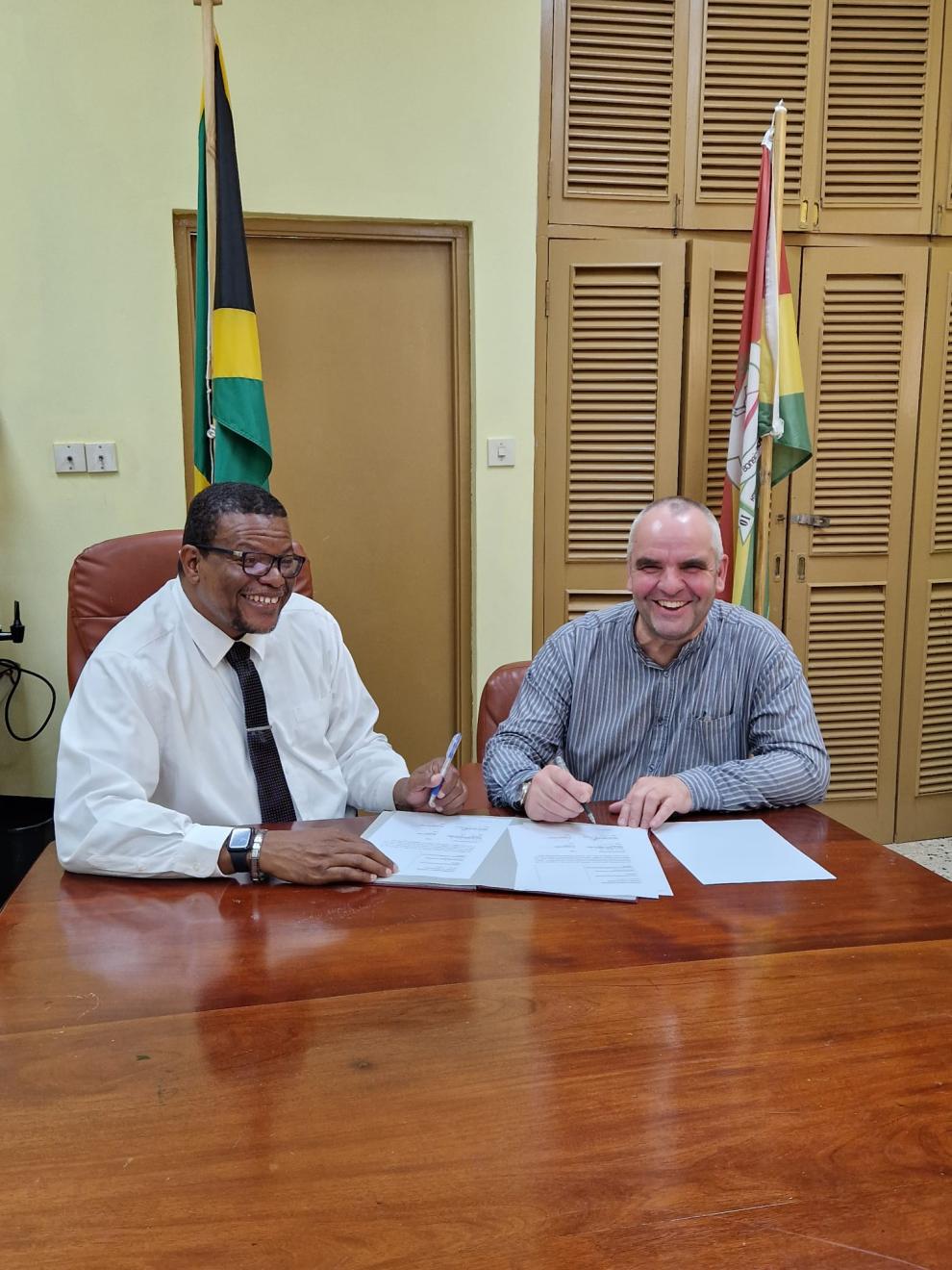New Educational Bridge
The Faculty of Life Sciences and the Jamaican College of Agriculture, Science and Education enter into a partnership
In a move to expand global educational opportunities, Rhine-Waal University's Faculty of Life Sciences has forged a new partnership by signing a Memorandum of Understanding (MOU) with the College of Agriculture, Science, and Education (CASE) in Kingston, Jamaica. This agreement opens doors to enhance educational and practical experiences for students and lays the foundation for future collaboration.
Start of the collaboration
The partnership began through a simple request from the Jamaican Embassy in Germany, which led to discussions about the possibilities of collaborating with a Jamaican agricultural institution. The prospect of integrating Jamaica's rich agricultural resources into educational experiences sparked interest among Rhine-Waal University faculty members.
The formalization of this partnership was celebrated with the official signing at CASE, which was attended by key faculty members from both institutions, including Professor Kleinke from the Faculty of Life Sciences. The signing of the MOU, a symbol of mutual intentions, marks the beginning of the anticipated collaborative growth and cultural exchange.
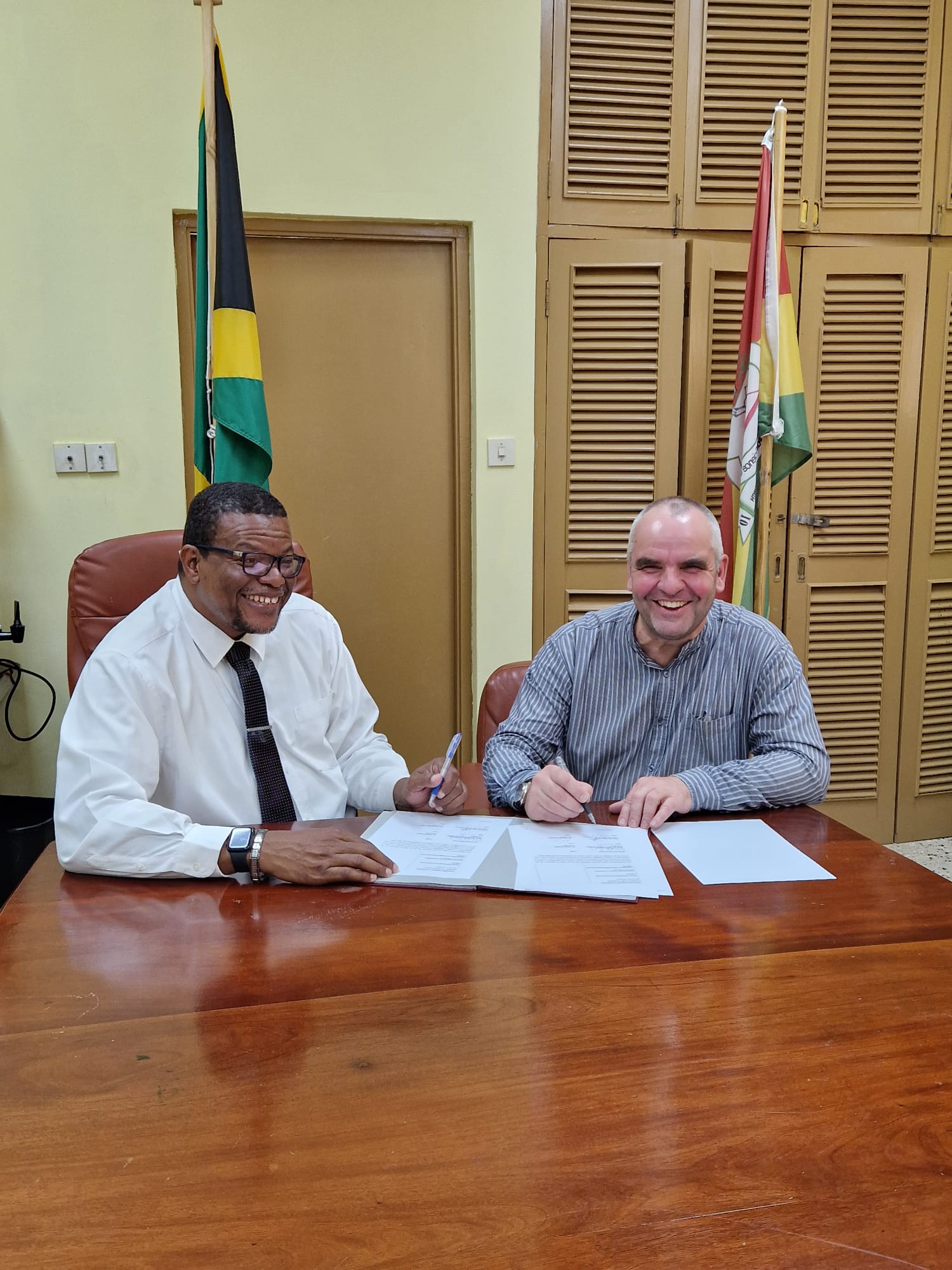
Dr. Derrick Deslandes and Professor Kleinke during the MOU signing ceremony
Insights on site
During their visit, faculty members Professor Wiedemann, Professor Wichern and Professor Kleinke toured CASE's campus and observed its extensive agricultural practices. They explored fields of pineapples, bananas and the livestock that is an integral part of the college's self-sufficient food supply. These direct experiences underscored the hands-on focus of CASE's educational approach.
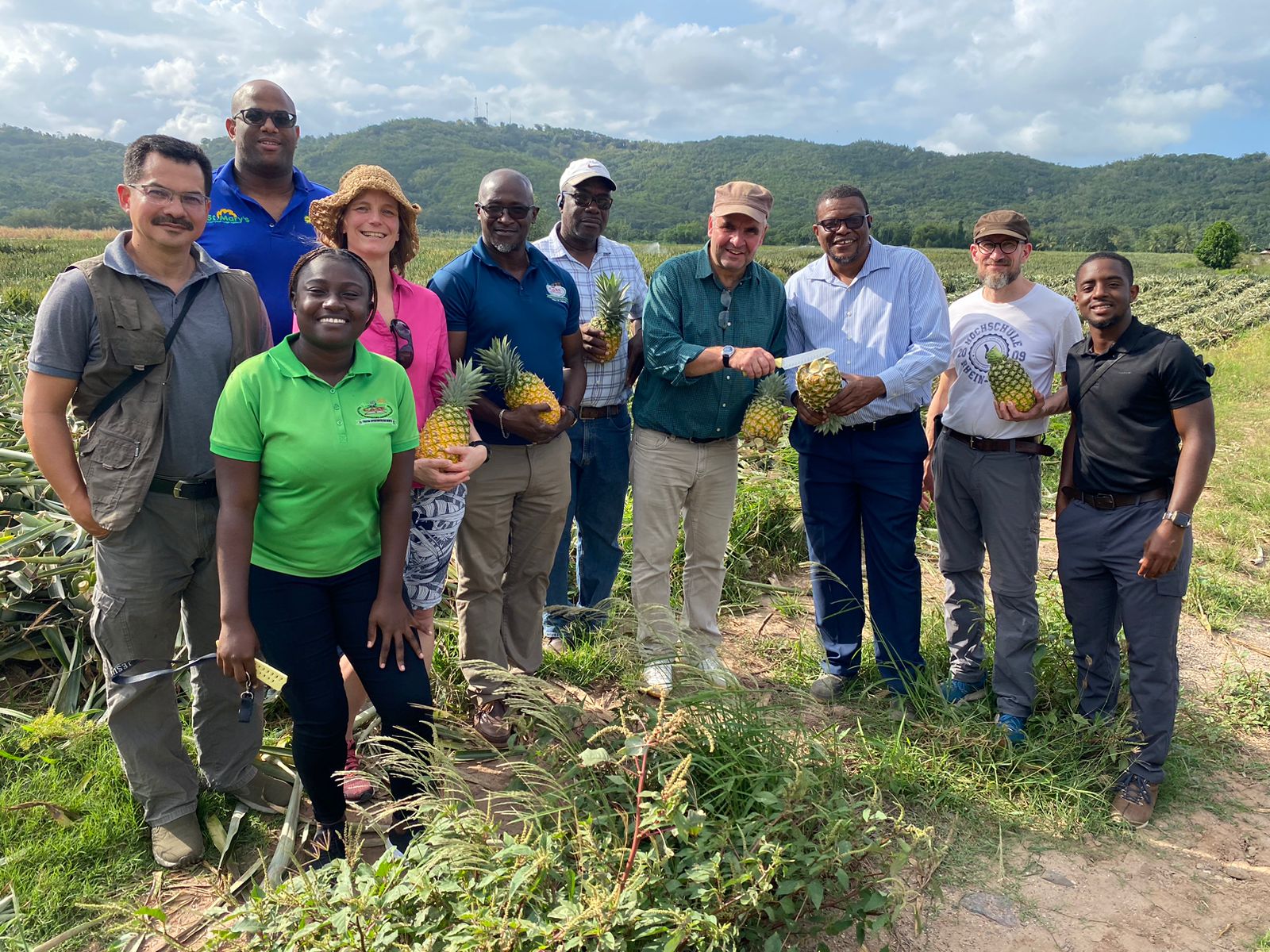
Team members from both institutions during the visit
This partnership provides a new opportunity for Rhine-Waal University students, especially those in agricultural sciences, to participate in exchange programs and internships in Jamaica and gain hands-on experience in a diverse agricultural environment. It also paves the way for future academic collaborations and research initiatives.

